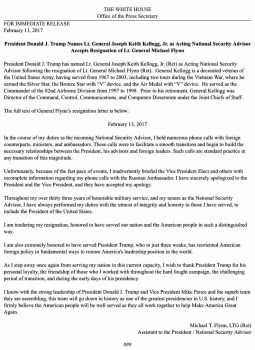The New Tax Reform Bill: Details and Current Status
On November 16, 2017, a bill that House Republicans claim would reduce taxes on corporations and individuals was passed in the US House of Representatives. It passed with 227 congressmen voting for it, and 205 against.
Meanwhile, the Senate Finance Committee has cleared the Senate version of the bill. Republicans from both houses endeavor to finish a joint tax reform proposal by the end of this year.
House and Senate Republicans aim to present a tax bill to President Donald Trump by Christmas. One of the President’s promises during the elections was to cut taxes, and he went to Capitol Hill to rally support for the bill before voting started.
The reform plan that passed in the House of Representatives would permanently reduce corporate tax rates from 35 percent to 20 percent. There are also amendments aimed to allow businesses to become more competitive, and it lowers the number of individual tax brackets from seven to four.
The bill introduces changes to certain tax breaks, such as restricting mortgage interest deductions, local and state deductions, almost doubling standard deductions as well as removing the personal exemption.
For more information on the bill passed on November 16, please see https://waysandmeans.house.gov/taxreform/ or for more information about the Senate bill see https://www.finance.senate.gov/taxreform
The Senate version revokes the mandate for Americans to obtain health care insurance, which is one of the requirements of Obamacare.
Senate Democrats are opposed to the bill. In a statement, Sen. Robert P. Casey Jr. (D-PA) said, “In order to finance tax cuts for the super-rich and big corporations, this proposal from Republicans in Washington would add $1.5 trillion to our deficit, which could lead to cuts to Social Security, Medicare and Medicaid.”
Some Senate Republicans have also expressed concerns about the proposed bill, foreseeing that deficits in the budget due to decreased taxes, individual tax cuts, and the revocation of one aspect of Obamacare could be obstacles to tax reform.
The CBO estimates that the Republican’s tax reform plan would cause the US national debt, currently at $20 trillion, to increase by $1.5 trillion over a period of ten years. This is causing some GOP legislators some worry about the future of America’s budget. For more information: https://www.cbo.gov/publication/53297
In a tweet, Senator Jeff Flake (R-AZ) said, “I remain concerned over how the current tax reform proposals will grow the already staggering national debt by opting for short-term fixes while ignoring long-term problems for taxpayers and the economy. We must achieve real tax reform crafted in a fiscally responsible manner.”
If the bill passes in the Senate, the two houses will come together to draft a joint proposal. The two chambers’ plans significantly differ when it comes to local and state tax deductions.
The version of the Senate completely removes these deductions. This may cause some House Republicans to withdraw their support since their version allows property tax deductions of up to $10,000.
Republican Congressman Dan Donovan (NY) also said, “The tax reform details as presented today will hurt, not help middle-class families in New York. We need a bill that doesn’t divide and penalize some Americans just because of their zip code..… People are counting on us; we have to get this right.”
This week, Republican leaders in the Senate are planning on bringing their tax reform bill to a vote at the Senate, possibly on Thursday, November 30.
“Back in D.C., big week for Tax Cuts and many other things of great importance to our Country. Senate Republicans will hopefully come through for all of us. The Tax Cut Bill is getting better and better. The end result will be great for ALL!” President Trump tweeted on Sunday night, November 26.
Senate Republicans need to garner 50 votes from their party in order for the bill to pass. According to Senate Republican Policy Committee Chairman John Barasso (R-WY) said President Trump will be attending the GOP’s luncheon on Tuesday, November 28, and will be talking about the tax reform bill, “We look forward to welcoming President Trump to the Senate again next Tuesday. This is a historic opportunity for our conference and the president to build on our momentum to give Americans the tax relief they’ve been waiting for.”
References:
https://twitter.com/realDonaldTrump/status/934961858380955648
https://www.flake.senate.gov/public/index.cfm/press-releases?ID=DBAAFC86-8FC3-48F9-897B-E2C8E2407E77
https://www.casey.senate.gov/newsroom/releases/casey-statement-on-latest-gop-tax-plan
